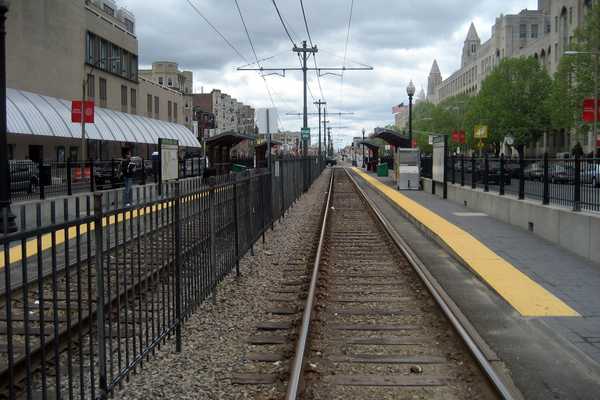I am a first-generation Filipino-American. My family moved to New Jersey from the Philippines when I was 5 years old, before 9/11 and when immigration was less strict than it is now. After a short visit to the States, my parents decided to immigrate here in the search for “a better life” for my siblings and me. They left their extended family in the Philippines so that they could afford my siblings and me the opportunity for social and economic mobility.
Today, my family and I are relatively well off, compared to where we started. My older siblings are all professionals in their respective fields, one of my brothers holds a post-secondary degree, and I’m receiving a Yale education. It’s easy to think of my family as an example of a typical "model minority" success story. It’s a bit harder to dig deeper into the bigger picture and how my family’s experience could be a cog in the machine that perpetuates the myth of the “model minority.”
At first glance it’s easy to look at the facts: Filipino-Americans are the second largest Asian American ethnic group in the United States and also have the second highest median household income of all ethnic groups. One explanation that comes to mind is that this is a result of a culture of hard work and perseverance. However, in this article I hope to challenge that explanation, and that this socioeconomic success comes from a history, both of marginalization and of privilege.
Let’s take a brief look at, specifically, Filipino-American history. From 1899 to 1902, Filipinos fought for independence from the United States in the Philippine-American War. Much like other imperialist escapades, the Western characterization of Filipinos during this time was an “otherly” or “aboriginal” one. A Spanish chronicler during the time attributed mestiza beauty in a way that “…their more agreeable cast of countenance is inherited from their Spanish countenance. The Malay predominates in the others, and shows plainly in the rather unpleasant scowl in their faces.” Still, many incidences of racism towards Filipino-Americans pervaded in the 20th century: the Anti-Filipino Riots of 1930 in response to Filipino miscegenation with White Americans, a bombing of the Filipino Center that same year in Stockton, the annulment of benefits specifically to Filipino troops in the Rescission Act of 1946, and many, many more. Actual independence was not achieved until after World War II in 1946, and it by no means erases or forgives the marginalization of Filipino-Americans prior, nor does it eliminate the characterization of Filipino-Americans as “other” people.
Perhaps it is this characterization as “otherly” that has led to the Filipino-American culture of assimilation. Being told by white supremacy that you are secondary or inferior obviously has effects on the behavior of your people. Filipino-Americans are more likely than any other ethnic group to intermarry, especially with white partners. At the height of the period of Japanese internment, Filipino-Americans stuck up to the white man and explicitly identified as ‘Filipinos’ to avoid anti-Japanese discrimination.
It is clear that Filipino-Americans have a long and fraught relationship with American racism, discrimination, and marginalization. In light of this narrative, it makes the story that Filipino-Americans are “doing well” a little more ambiguous. Today we still face many of the same problems that our parents and grandparents did. We face microaggressions that undermine our identity and our place in this country. Even our cuisine is portrayed in the media as disgusting and vomit-inducing. These experiences tell us that our very person is inferior and that to make it in this white supremacist society, we have to discard our very identity as Filipino-Americans.
In my previous article, I noted the responsibility of Asian Americans to not be complicit and to use the advantages from the system granted to us to fight for marginalized minority groups. I have received criticism to the effect that Asian Americans are not privileged, or to the other effect that Asian Americans are not oppressed. To this I say for the sake of clarity that Asian Americans have their unique privileges and their unique experiences of marginalization. And of course, within the umbrella of Asian America, different ethnic groups, like Filipino-Americans, have different experiences of marginalization and oppression as well as different experiences of privilege.
You may ask, “well what is Asian American privilege?” It comes from our ambiguous position on the black-white binary, where we simultaneously receive the benefits of civil rights earned primarily by black activists, and sometimes unconsciously exploit structures that mostly benefit white Americans. As an example, Black Americans fought for the Civil Rights Act of 1964 and many parties benefit from the Act, including Asian Americans. These parties benefited equally from the Act, but Black Americans suffered much more in the processes that led to its enactment. Many Asian Americans also enjoy the privilege of immigrating to a place where they have not experienced Black slavery or the genocide of Native peoples. Additionally, immigrating sometimes means transferring skills or resources (like college educations, for many Asian Americans) to a new place where previously marginalized groups could not obtain those resources. This could be a prime example of Asian Americans benefiting from structures that mostly benefit white Americans. Asian Americans that immigrate with degrees that they earned in their home country have access to a wider variety of employment opportunities and further education than other marginalized groups that do not have the means to pursue higher education in America.
The point of this article is not to define where Asian Americans stand in the marginalized vs privileged debate. When people say that Asian Americans are “doing well,” be skeptical, because it is prudent for us to acknowledge that our privilege comes from structures that have oppressed other marginalized groups and that we also have a history of marginalization, which is of course unique to each ethnic group (I cannot speak, for example, for Vietnamese-Americans or Japanese-Americans because their history is a much different one than mine). Nor is the point of this article to erase the histories of these different ethnic groups and to lump us all into one pan-Asian America. The only thing lumping us together is the model minority myth, which asserts that just by virtue of being Asian, we are able to succeed, and this is the very structure that we should seek to undermine.
The point is that, as Asian Americans, in order to subvert the systems of oppression that plague our society today, we have to acknowledge that we have these privileges and that we have unique pasts. Perhaps my family was able to climb the social ladder because of connections that may not have been afforded to a Black or Native family. And these connections may have been established simply by the leverage of relatives who can help with employment or offer places to stay for extended periods of time (my entire family of six, at the time, actually stayed in my aunt’s apartment for several months before we finally found our own place). Privilege and opportunity are sometimes difficult to notice and it’s sometimes too easy to attribute our successes to diligence and hard work. And by no means am I asserting that my privilege is the same for all Asian Americans. Obviously, many Asian American ethnic groups have struggled in the system, at least in the same socioeconomic terms that, for example, define Filipino-Americans as "successful," which is the very problem of the model minority myth. We don't share all of the same struggles nor do we share the same privileges within our community and with other people of color, but we should hold solidarity with all of them, because the perpetrator behind them is the same: white supremacy.
That’s the reason that this fight for racial justice is also my fight. Because my friends of color have historically stood up for racial justice and I benefit from the successes they achieve. History and my lived experience have told me, as a Filipino-American, that I am "otherly" and unwelcome. To that, I say no. To the people that say Asian Americans are not people of color, I say no. To the people that deny the marginalization of Asian Americans, I say no. To the fellow Asian Americans who think that they do not have a stake in this, I say no.





















